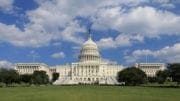by Nicole Huberfeld, Boston University and Linda C. McClain, Boston University, [This article first appeared in The Conversation, republished with permission]
Abortion rights advocates won major victories in several state elections on Nov. 7, 2023, signaling that abortion laws are likely to continue to play an important role in the 2024 elections.
In Ohio, the only state where abortion was directly on the ballot, more than 56% of voters in the conservative-leaning state approved a measure called Issue 1.
This constitutional amendment protects people’s right to have an abortion in Ohio, as well as to get contraception and receive treatment for fertility issues and miscarriages.
Virginia Democrats, who campaigned on preserving abortion rights, maintained control of the state Senate and took control of Virginia’s House of Delegates from Republicans. While abortion is legal in Virginia until the 26th week of pregnancy, Republican Gov. Glenn Youngkin has said he wanted the legislature to enact a ban on abortion after 15 weeks of pregnancy.
And in Kentucky, Gov. Andy Beshear, a Democrat, won reelection. During his campaign, Beshear promised to protect abortion rights and highlighted Republican opponent Daniel Cameron’s support for Kentucky’s near-total ban on abortion.
We are scholars of law, gender and health and co-direct Boston University’s Program on Reproductive Justice.
We wrote last year that new constitutional amendments protecting a right to abortion in states usually considered “red,” like Kansas, were not flukes. Rather, such wins, which have happened in six other states since 2022, affirm a broader trend. The majority of U.S. voters support laws protecting access to abortion and other reproductive care.
Here are three important things to know about the election results.
1. Votes amending state constitutions are key to protecting abortion rights
Ohio voted for former President Donald Trump in 2016 and in 2020. In recent years, it has been considered a toss-up state that is turning “red.”
In the days leading up to the 2023 election, some conservative commentators observed that “anti-abortion groups are banking on Ohio to end the movement’s run of state-level losses and create a blueprint for battles in 2024 and beyond.”
Instead, most Democratic and independent voters, and some Republican voters, cast their ballots in favor of Issue 1, rejecting Ohio’s law that bans abortion after six weeks.
This followed on the heels of a recent high-profile case in which a 10-year-old Ohio girl had to travel to Indiana to have an abortion after she was raped and could not have the procedure in Ohio. Notably, physicians vocally opposed Ohio’s restrictive laws.
This new constitutional amendment means that Ohio’s 2019 law that prohibited abortion as soon as fetal cardiac activity could be detected – as early as six weeks into pregnancy – will not be allowed to take effect. A lower state court stopped enforcement of the six-week ban, but the case was making its way to the Ohio Supreme Court, whose seven members are mostly Republicans that have publicly opposed abortion rights.
Now, the Republican-controlled Ohio legislature does not have the power to amend or stop the new constitutional amendment or to enforce the six-week ban.
Lawmakers may still campaign to repeal Issue 1, but this change would require voters to first approve a different ballot initiative.
While state constitutions are amended much more frequently than the U.S. Constitution, a majority of voters in Ohio showed they support abortion rights, so another ballot measure seems unlikely.
2. Reframing abortion restrictions does not fool voters
In Virginia, Democratic candidates campaigned on preserving abortion rights, while Republican candidates charged Democrats with being obsessed with abortion.
Some Republican candidates also denied that they supported an abortion ban. Instead, they attempted to describe Youngkin’s proposed 15-week ban as “legislation that reflects compassionate common sense.”
The election results suggest that a majority of Virginia voters effectively rejected this proposed ban on abortion after 15 weeks.
Instead, they elected Democratic candidates who pledged to protect abortion rights in the one Southern state that had not enacted new restrictive abortion laws since the Supreme Court overturned Roe v. Wade in 2022.
With Democrats controlling both legislative chambers in Virginia, new bills will stall, and the legislative majority can counter other restrictive measures that are proposed.
3. Abortion rights matter up and down the ballot
Beshear placed abortion at the center of his campaign for governor in Kentucky, even though the state has a near-total ban on all abortions and does not have any exceptions for cases of incest or rape.
His win, as well as the Pennsylvania Supreme Court election that resulted in one more Democrat joining the court and creating a majority, suggests that highlighting abortion rights in election campaigns can be an effective way to draw in voters.
While Kentucky voters said the economy is a top issue for them, they have also said abortion and other basic rights are important, too.
Beshear’s campaign ran an unusual advertisement featuring Hadley Duvall, a Kentucky resident who was raped by her stepfather at age 12. She became pregnant but later miscarried. Duvall, now 20 years old, appeared in the television advertisement and challenged Cameron’s support for Kentucky’s law, which allows an abortion only in order to save the life of a pregnant woman – while instructing doctors to try to save the fetus, too.
The ad resonated with voters, even in a state that now has no abortion clinics.
Beshear’s reelection shows that politicians can effectively push for laws that walk back from near-total abortion bans, such as making exceptions in cases of rape or incest. In 2022, Kentucky voters already rejected a state constitutional amendment that would have prevented recognizing a right to abortion in the state.
These different state elections point in one clear direction.
Abortion increasingly matters to voters. And most voters do not want laws severely restricting abortion and other kinds of reproductive health care.
The 2023 election outcomes also suggest that Democratic candidates can effectively use abortion as a campaign issue. This will be critical for the general elections in 2024.
Nicole Huberfeld, Professor of Health Law and Professor of Law, Boston University and Linda C. McClain, Professor of Law, Boston University
This article is republished from The Conversation under a Creative Commons license. Read the original article.





